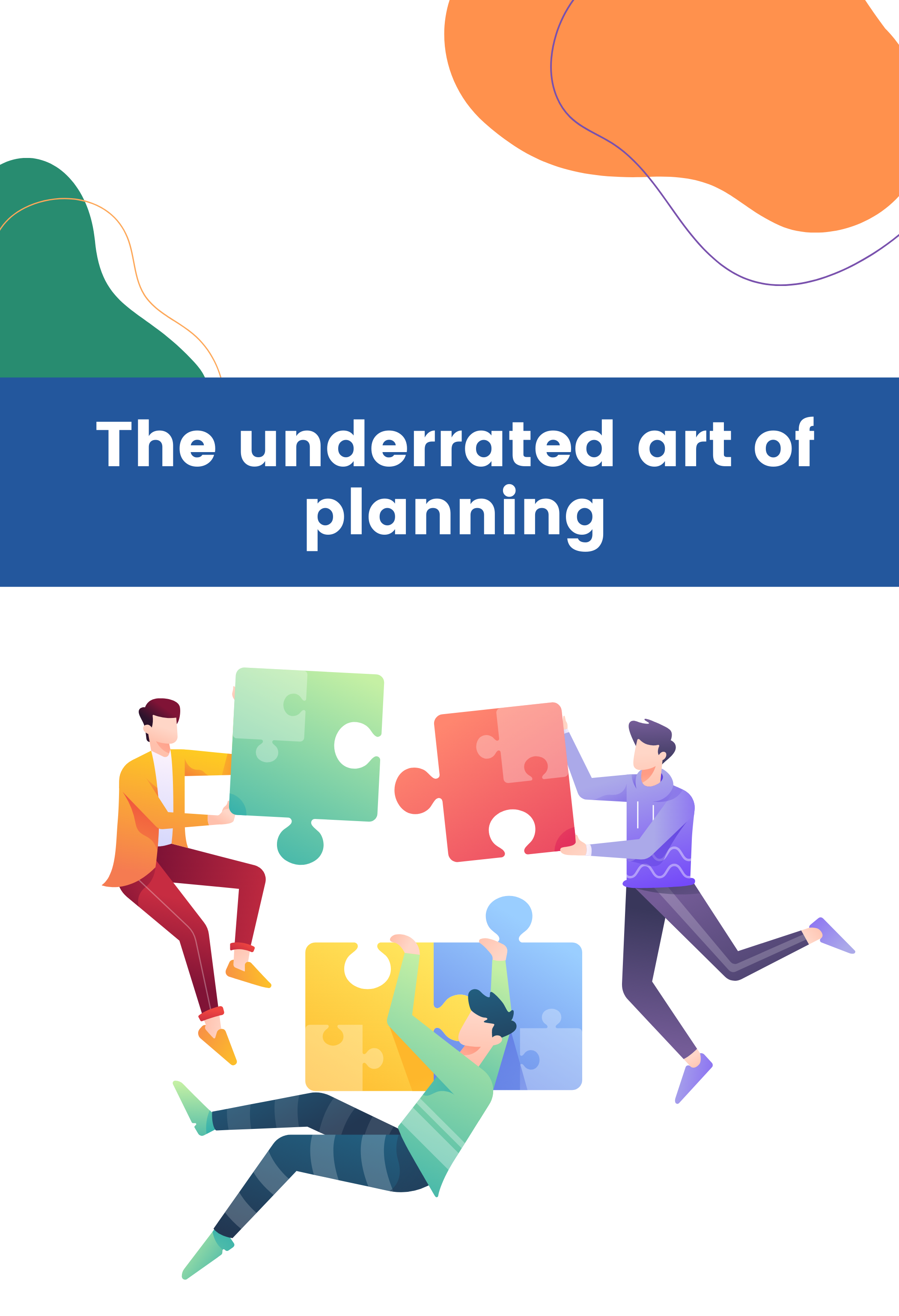The underrated art of planning

Parent Post
Planning is a super
Planning is a super boring skill that’s incredibly valuable. Most people are terrible planners.
Psychologists have a name for bad planning —the planning fallacy. The planning fallacy points out that people tend to be overly optimistic planners. So our projects take much longer and more effort than we anticipate.
Planning, not procrastinatingPlanning is
Planning, not procrastinating
Planning is an active process that requires research, scheduling, and often facing the uncomfortable realities of real-world achievements. Whereas procrastinating means musing an idea instead of concrete action.
So, you can see that the kind of planning that works is far from procrastinating.
Making plans may not be the most exciting skill, but it’s one of the most important. Ultimately, the future belongs to those who plan for it.
Our ancestors had little
Our ancestors had little need for complex planning. As such, nature didn’t make us great long-term thinkers. One way our ineptitude at planning manifests is in what behavioral economists call hyperbolic discounting.
The idea here is that when we need to choose between rewards right now and rewards in the far future, we’re much less patient than we ought to be.
Being able to restrain your impulses and think long-term is associated with success across many different metrics: health, wealth, education, and more.
Put the plan in
Put the plan in your calendar
Next, you need your personalized calendar. When will you start? How many days a week will you work? When do you expect to reach particular milestones?
All of this needs to be put in your actual calendar. You should also include a weekly horizon showing your hourly time investments. Put down all of the key milestones. You should also include a weekly horizon showing your hourly time investments.
If your plan never touches your calendar, you’re not forced to confront conflicts until it’s too late you’re much more likely to stick to it than if the hardships show up belatedly.
The benefits of good
The benefits of good planning go beyond simply thinking long-term.
If you want to advance your career, for instance, you may need to go to school or acquire skills, you may need to apply for new jobs or complete key projects. Each of these efforts requires considerable planning to achieve.
Translate to daily actionsThe
Translate to daily actions
The final step of any good plan should tell you what you need to do today.
Immediate action is the only kind that gets anything done. You can go a step further and commit to particular hours for your plan. If you’re relying on a deadline that’s weeks away to motivate, you’re not going to stick with it.
The 10% Rule: Taking
The 10% Rule: Taking planning seriously
The first step to becoming a better planner is simply to set aside more time for it. Follow the 10% Rule, which says that you should spend roughly 10% of the total time you anticipate for a project on planning the project.
For new project types where you lack experience, the time spent planning is often the most valuable. However, this rule can be reduced for longer projects.
Map out everything you
Map out everything you need to do
The next step is to break down everything you need to do to move forward on a project.
Ask questions to yourself, set discrete milestones, and plan ways to achieve them. The key to success requires a little bit more planning than feels automatic.

